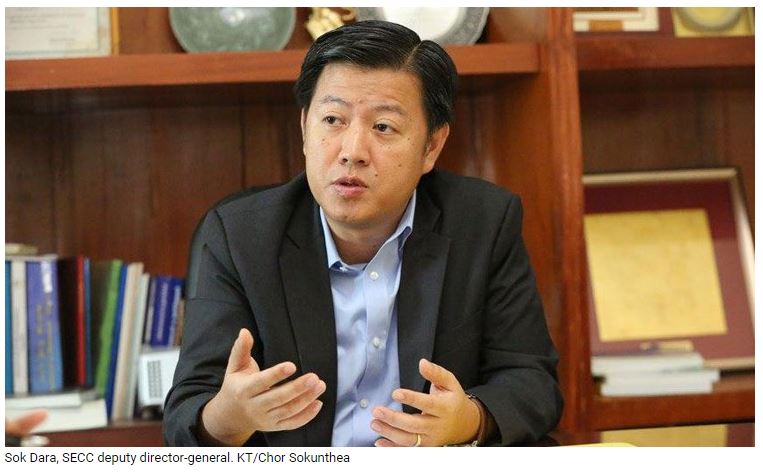Cambodia: Local bourse suffers from liquidity woes
Cambodia’s financial industry has outlined more listings, an improved trading eco-system and overall community awareness as key focus areas to increase the low levels of liquidity in the local securities exchange.
Established in 2011, the Cambodia Securities Exchange (CSX) for many years held the title as the smallest exchange in the world but has been slowly yet steadily building a strong portfolio of both government and private companies.
Attracting its largest and most high profile listing, ACLEDA Bank, in May this year it was hoped the record-breaking initial public offering (IPO) would bring an increase of active investors to the index, in turn, raising the stubbornly low levels of liquidity that had plagued the CSX since its opening.
Market liquidity refers to a market’s ability to allow assets to be bought and sold easily and quickly. The market for a stock is liquid if its shares can be quickly bought and sold and the trade has little impact on the stock’s price.
However, while liquidity spiked in the weeks after the ACLEDA Bank IPO, four months later the index has struggled to maintain these levels resulting in average daily trading volumes now returning to stubbornly low levels.
They are declining from around $150,000 in 2019 to $130,000 so far this year, despite the total market capitalisation increasing from around $700 million to $2.5 billion over the same period.
The figures have left both the exchange, its regulator (the Securities Exchange Commission of Cambodia) and fund managers looking to explore different approaches to increasing liquidity levels.
“There are some technical reasons for the drop in trading volume between 2019 and 2020. However, yes, official daily trading volumes have dropped and we accept that local securities market is not attracting as many investors compared with the banking and real estate sectors,” said Deputy Director-General of the SECC Sok Dara.
He added the underlying issue is that professional investors make an investment decision based upon the simple calculation of the value of their capital and percentage of return.
However, right now the index simply is not yet diverse enough to provide enough choice for that investment decision.
“That said, from a regulators point of view it does show that the CSX is not a speculation market and that investors are professional and stable,” he added.
 Cambodian Securities Exchange annual figures from 2012. Supplied
Cambodian Securities Exchange annual figures from 2012. Supplied
In response, the regulator has outlined three key focus areas for the regulator to attract more listed companies, making it easier to actively trade equities and raising public awareness.
“The SECC will focus on attracting more listed companies to increase and diversify the investment portfolio to allow more rational choices for investment on the CSX, as well as creating more methods to trade such as increasing the opening hours and changing from single-price option trading to continued-price option trading,” Dara said.
“We will also be increasing public awareness campaigns and working with relevant stakeholders to create more investment products and instruments. There are approximately 28,000 account holders. However, [there are] only 500 active daily users (2-3 percent) so hopefully this can be increased too,” he added.
Recently licensed fund manager OBOR Management reflected on these strategies, saying many emerging markets’ stock exchanges have the same issue of low levels of liquidity, placing a constraint on their development.
The main areas that need to be focused on are promoting the development of a diverse investor base, increasing the number of listings and securities and improving the eco-system through the improvement of trading technology and access to data, said Christophe Forsinetti, chairman of OBOR Management.
“The exchange needs to attract more local and international institutional investors and promote the stock exchange towards the retail market, because it is the retail market that will drive daily trading,” he said.
“The CSX also needs to meet local companies with listing potential and encourage local listings, provide assistance and connect them to financial advisers while also developing equities, quasi-fixed incomes as well as derivatives,” he added.
Forsinetti also wants to see a better trading eco-system through the improvement of trading technology and access to data.
“This is the most important for investors to participate [in]. I participated in the Phnom Penh Water Supply Authority and the ACLEDA Bank IPO. There was a lot of progress between the two but it is still a difficult process that I would like to be able to do online or through online brokers,” he said.
However, Stephen Higgins, from Mekong Strategic Partners, said that while increasing the number and diversity of the exchange’s portfolio is, of course, a good thing, the listings need first to be trusted and their terms attractive to first time and seasoned investors.
“For several IPOs, they saw a big run after the float to unsustainable highs, which meant that most people who bought shares after the IPO are sitting on a loss. That tends to lower their willingness to buy more shares,” he said.
In addition, according to Higgins, some stocks have dividend policies that aren’t attractive to investors.
“For example, Phnom Penh Autonomous Port is a wonderful business that has one of the best financial profiles of any port in Asia, but it has a dividend policy that just doesn’t make sense. After it listed, its earnings have basically quadrupled, but the dividend has barely moved, so investors aren’t seeing the benefit of its performance,” he said.
“At the end of the day, investors need better outcomes than what they’re seeing at the moment. More trading methods for example are unlikely to make the underlying investments more attractive,” he added.
Source: https://www.khmertimeskh.com/50772242/local-bourse-suffers-from-liquidity-woes/


 Thailand
Thailand




